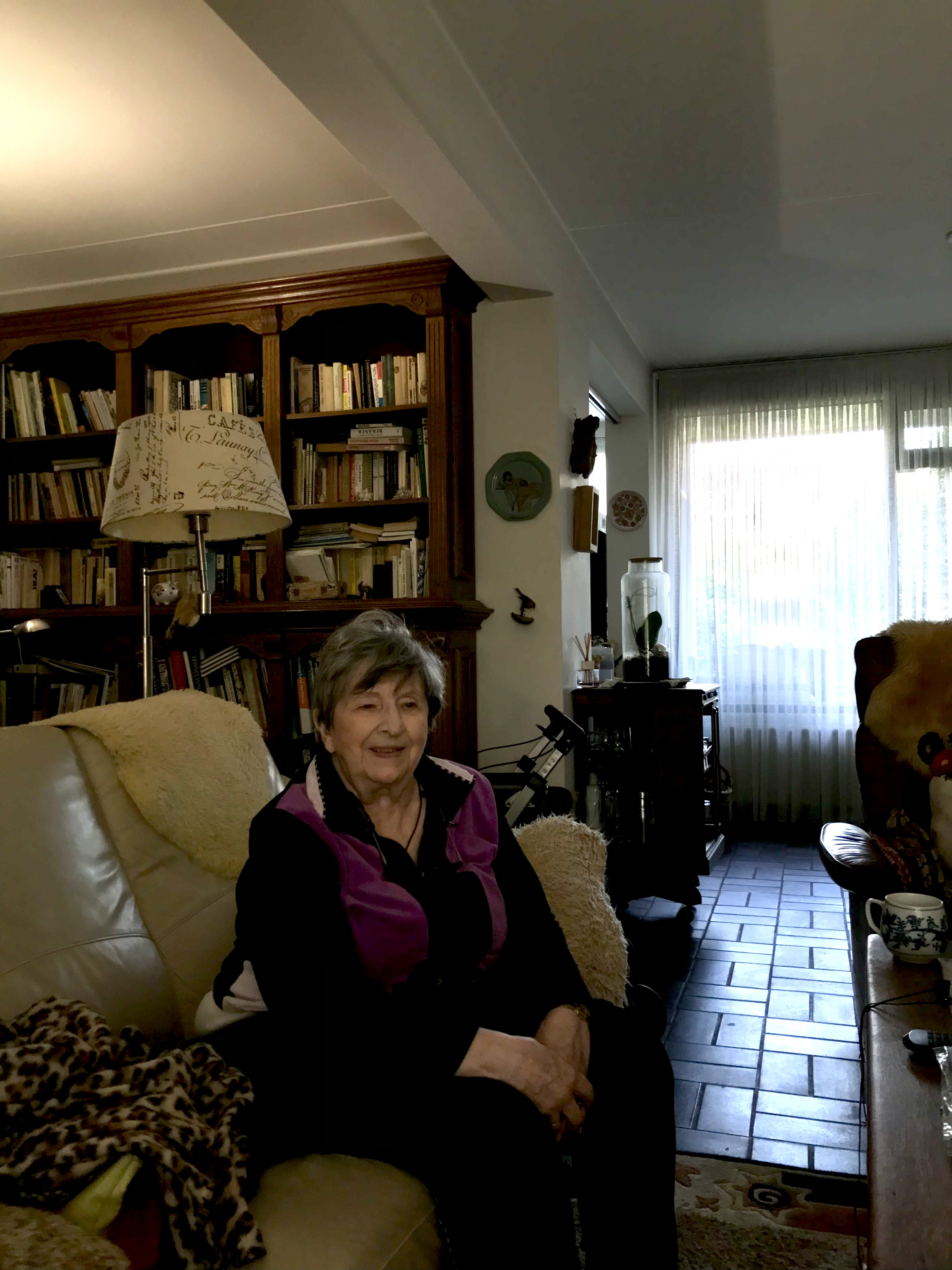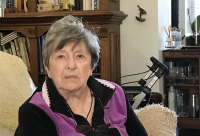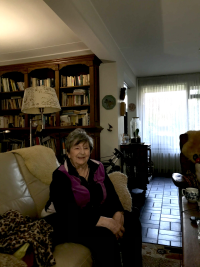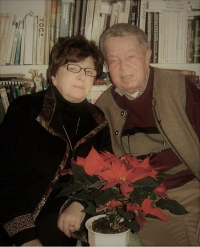Prague‘s spring bloomed with lush flowers, we emigrated from our vacation

Stáhnout obrázek
Věra Pokorná, née Scheuflerová, was born on 6 October 1935 in Prague. Her father owned a cardboard company in Prague‘s Vinohrady district, and her mother later worked as a saleswoman. Her grandfather was an Austrian officer who fought in the Czechoslovak legions in Russia. Věra Pokorná lived through the Second World War in the village of Bělčice near Blatná. At the end of the war, she encountered both the Soviet and American armies in the village and also met the Vlasov troops. After the war, she moved to Prague, where she attended grammar school. After 1948, because of her bourgeois background, she studied at a bourgeois school and became a lithographer at Neubert‘s printing house in Smichov. Later she graduated from the graphic industry school and studied art history and aesthetics for two years. She met her future husband Karel Pokorný at Neubert‘s print shop. In August 1968 she went on holiday to Yugoslavia with him. After the occupation by the Warsaw Pact troops, they did not return and went to the Netherlands. They settled in Weert and worked in a printing house as lithographers; Vera Pokorná later worked in a publishing house as an editor. In the Netherlands, she and her husband organized popular science symposia and participated in the production of the exile magazine Okno dokořán. In 2023, Věra Pokorná was living in Weert, the Netherlands.


